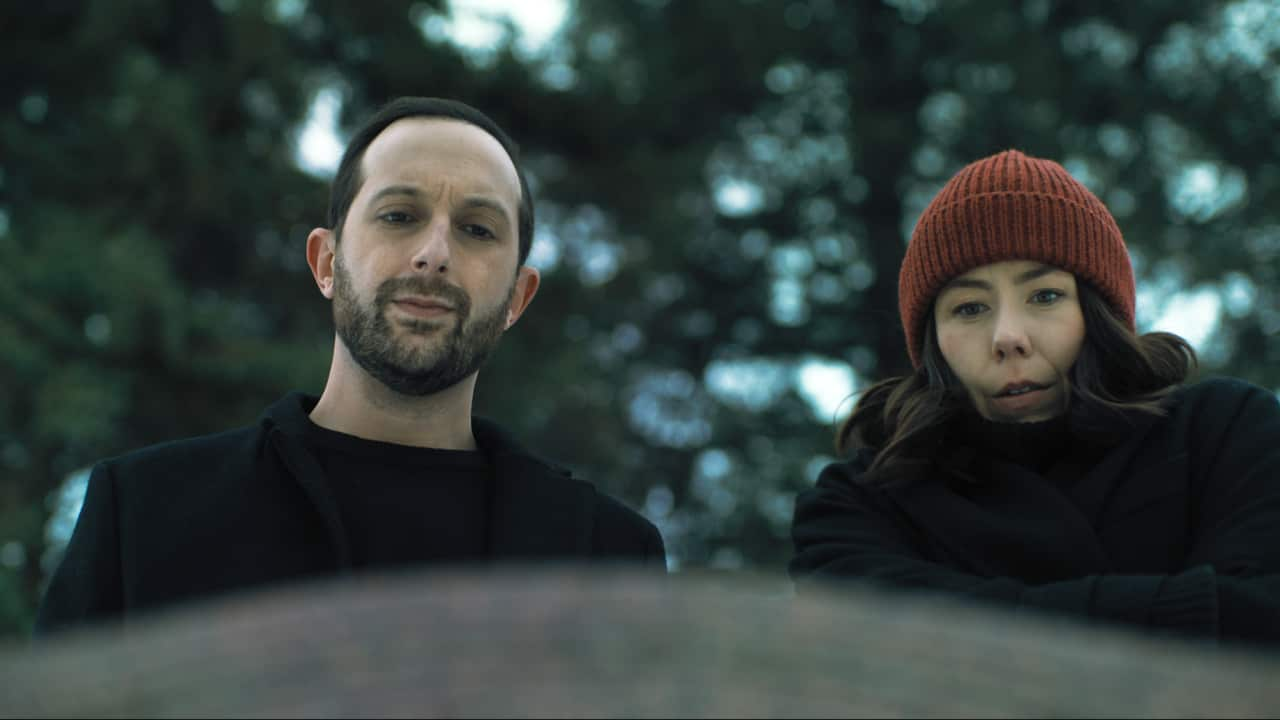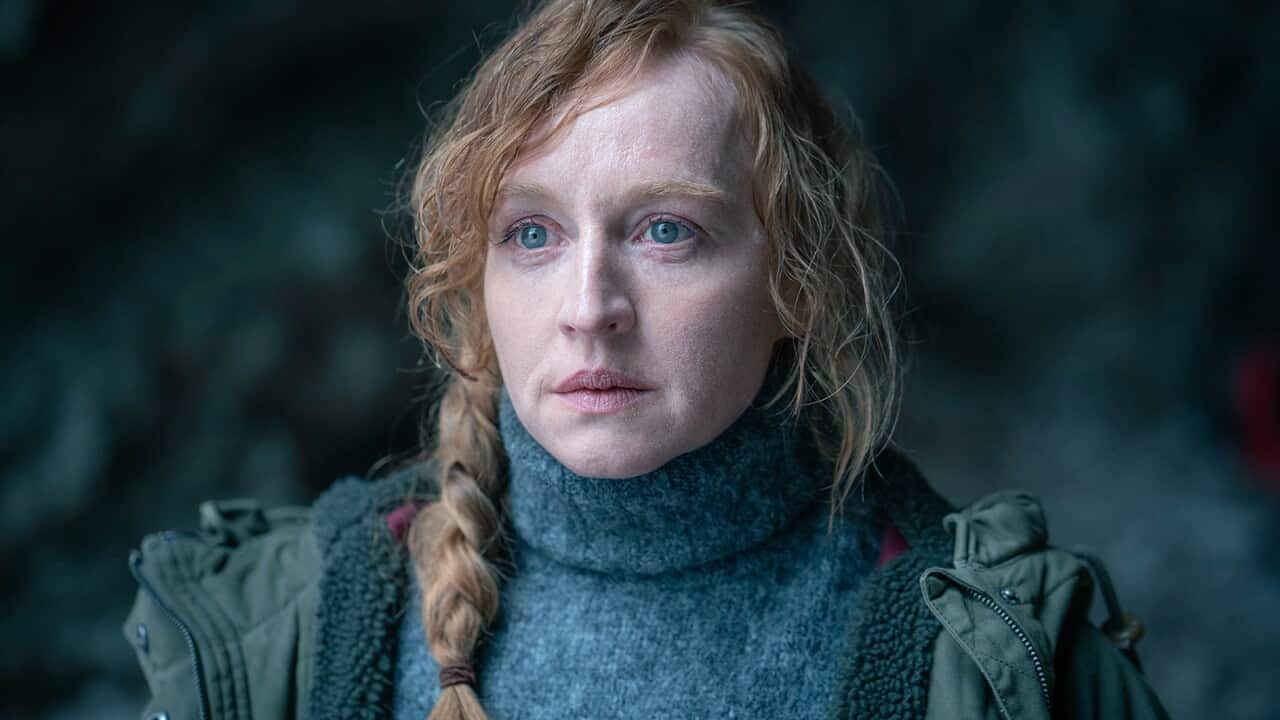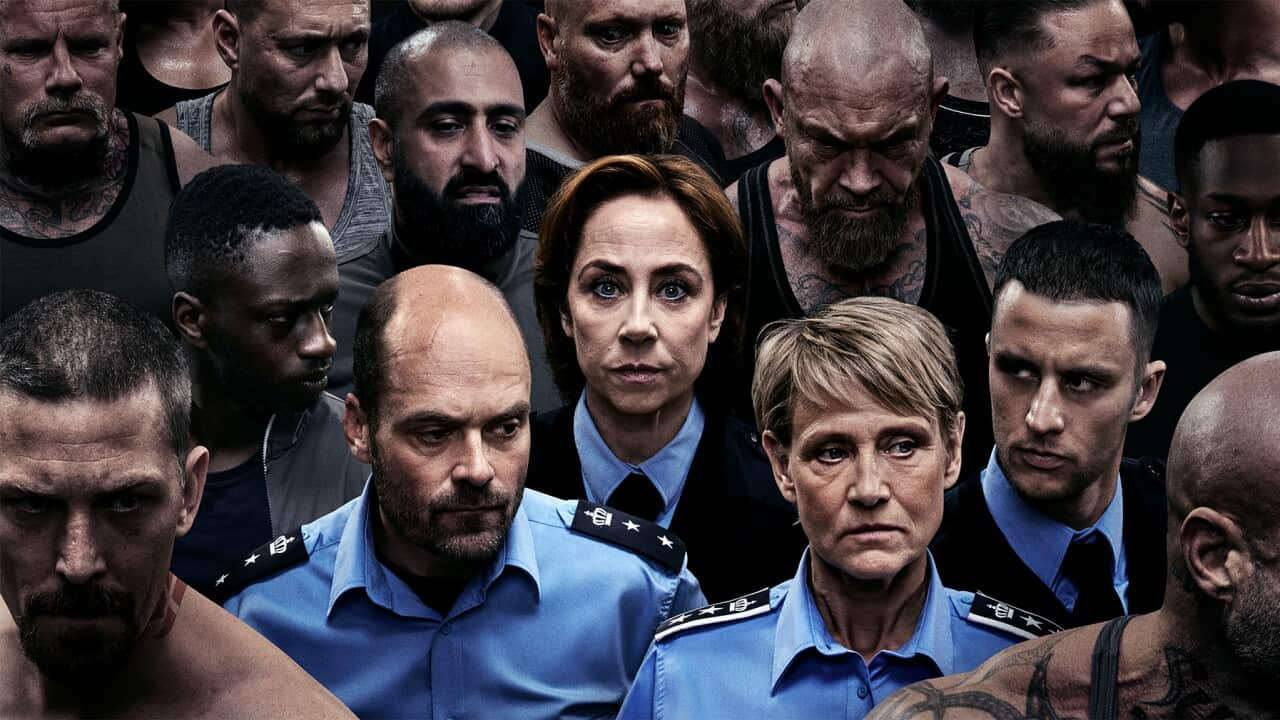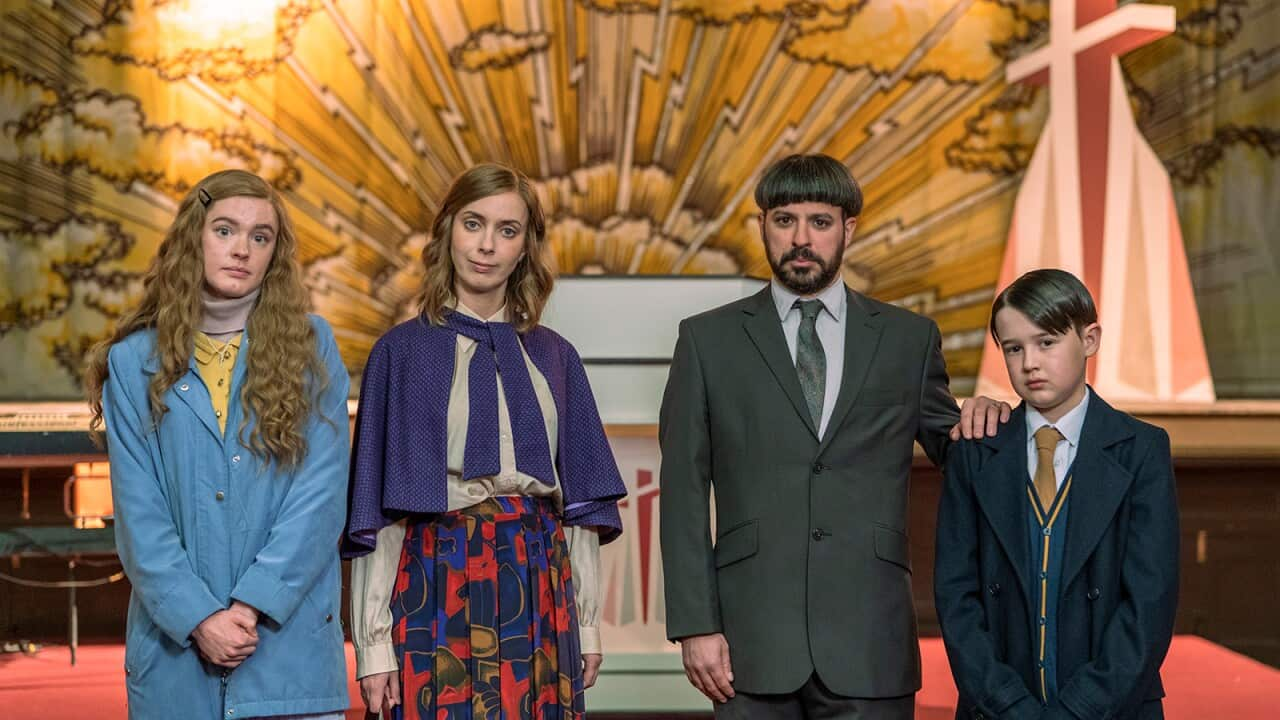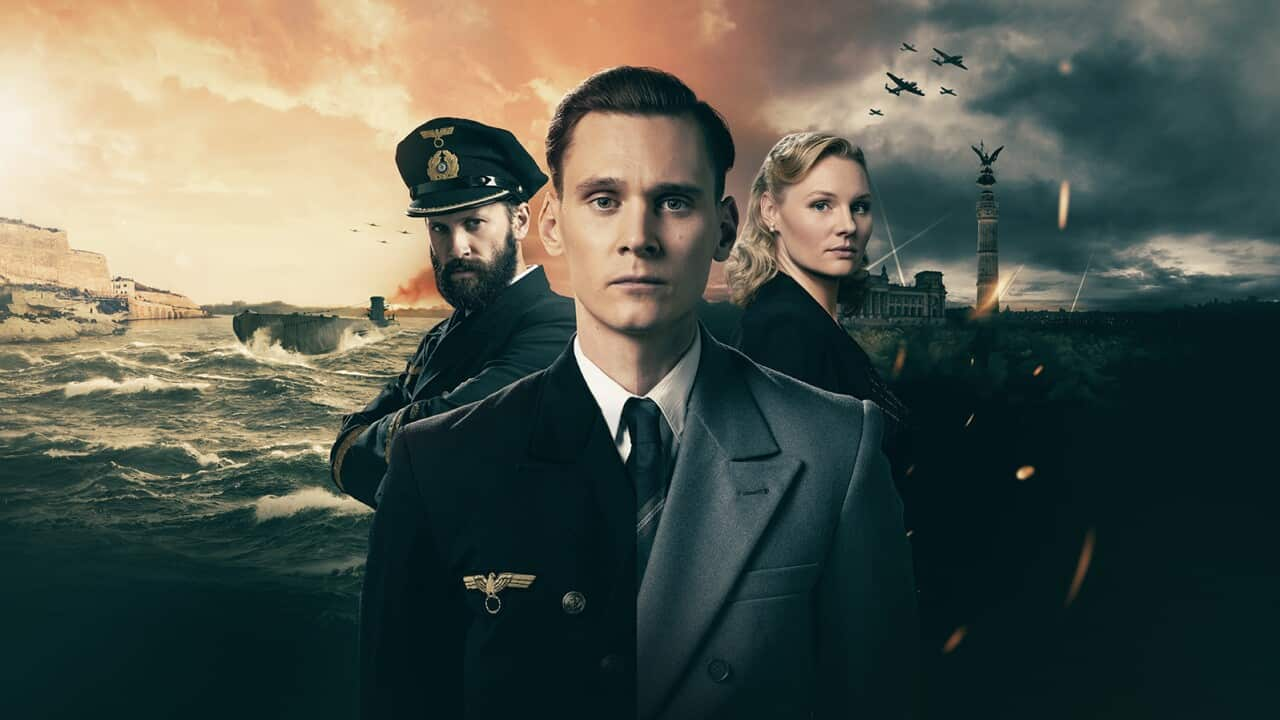“There are no clear rules, no-one has control,” says Suranne Jones (Gentlemen Jack, Save Me, Scott & Bailey) of the situation facing her character, DCI Amy Silva, in gripping six-episode series (now streaming at SBS On Demand).
She’s talking about clashes between Silva and the crew of nuclear submarine HMS Vigil as she tries to investigate a death at sea, when it’s not clear whether the Navy or the police are in charge. But it’s also a fair reflection of the uncertainty and challenges facing her character. How do you investigate a crime when you’re cut off from your colleagues, in the close, claustrophobic quarters of a working submarine? And what if there are things you have been trying to ignore that you now have plenty of time to think about?
The premise of Vigil (from the production team who brought us Line of Duty and Bodyguard) is clever, and intense. When a crew member is found dead on board HMS Vigil, police in Scotland are called in to investigate. But the submarine has to stay on patrol: with almost no notice, DCI Silva finds herself helicoptered out to the submarine, which dives straight below the waves again. For security reasons, there’s very limited communication sent from the submarine to those back on land, including her police colleague on the case, DS Kirsten Longacre (Rose Leslie).

Welcome to the Vigil, DCI Silva. Source: BBC / World Productions
Writer/creator Tom Edge
Where did the idea for Vigil come from?
Under Britain’s Continuous At-Sea Deterrent (CASD) program, which aims to ward off a nuclear strike, there’s always a submarine at sea, carrying ballistic missiles, ready to counter a threat.
The day-to-day operation of the CASD rests on the shoulders of ordinary men and women. When they go on patrol, 130 people leave their regular lives behind to live in cramped conditions, with no privacy, foregoing daylight and cut off from almost all communication with the outside world. During a three-month patrol the only news from home is a short, heavily vetted weekly message from a designated sender. No bad news is allowed to be included, in case it destabilises the recipient.
For the most part what helps keep people on a level is regularity… A successful patrol is one in which nothing unexpected happens. A few years ago, development producer George Aza-Selinger pitched me the idea of the unexpected happening – a sailor being found dead during an active patrol.
The promise of the premise was really clear. A locked-room mystery, in which the detective must work and sleep alongside the antagonist they’re pursuing. A detective forced to work without all the things that usually support them: colleagues, forensic tools, access to information and records, the tensions created by an outsider disrupting the crew’s cohesion.

It’s a long way down to the crime scene for DCI Amy Silva. Source: BBC / World Productions
DCI Amy Silva was born from those considerations. Her history makes the claustrophobic environment a tough test for her psychologically. Questions that she has grappled with in her civilian life are complex and deep-running, sometimes submerged, sometimes becoming visible in a way that makes her feel vulnerable.
Problems she had communicating with her ex-partner find new form in the one-way signalling between land and submarine; Amy can listen, but can’t talk back. There is no safe place for Amy to retreat to. All she has to hide behind is the thin curtain pulled across her bunk. Thrown into a highly charged situation with no time to prepare, she faces a reckoning with her most fundamental fears and desires. I’m incredibly grateful that Suranne agreed to play Amy – she does it brilliantly.

Paterson Joseph as Commander Neil Newsome and Suranne Jones as DCI Amy Silva. Source: BBC / World Productions
Suranne Jones (DCI Amy Silva)
Tell us about the parallel action in the series.
Amy’s supposed to be on Vigil for three days, but she uncovers lots of other things and becomes trapped down there for longer. Due to Navy protocols, she has no way of openly communicating with the land investigation – the only way Amy and Kirsten can contact each other is through heavily monitored telegrams. But that’s why Amy chose Kirsten for this mission – because they have a history – and she asks Kirsten to put hidden messages [in] about elements of the land investigation that may impact her underwater investigation.
When she gets down there, Amy and the crew clash, I think because they don’t know who actually has the authority, out of the Navy and the police… there are no clear rules as such, and no-one has control over the other.

Kirsten Longacre and Suranne Jones in ‘Vigil’. Source: BBC / World Productions
Complex, and not afraid to show who’s boss. Amy is a complicated, modern, quite vulnerable – when we first meet her – police officer. She’s single (having broken up with someone), and she is concentrating on work. That’s all she has in her life at present.
To say she feels claustrophobic and caught in a boy’s world when aboard Vigil is an understatement. I think she does really well. She has anxiety and depression, and usually she’s on medication and exercises a lot to cope with her condition. But when she’s down on the submarine, she loses all of that. She doesn’t have enough medication, she can’t exercise, so that impacts her a great deal as well.
Tom Edge does something really clever: [while] Amy’s trapped under the water she has time to look at her life. So during the criminal investigation there’s another investigation going on, which is Amy looking at who she is and what she’s been missing. It gives her time to really take a look at who she is and what she needs to do. I don’t want to give too much away, but at that point we, as viewers, learn about two key personal relationships in her life.
Is it true you did your own stunts?
I did. When I first read the script, I was like “Oh my god this sounds amazing – I get to do all these stunts!”. But I forgot how old I was. I thought I was 23 when I was reading it, and that’s not true anymore! So I had to do a lot of working out just to build up my strength to do those scenes. And then we had a gap partway through filming because of lockdown, and anyone who had a bit of lockdown belly will know it’s quite hard to get your strength up after that. Most of the stunts were when we were coming back after the break, so that was quite hard to build myself back up.
I got whiplash, I put my back out a couple of times, I was covered in bruises. Every time I went home my husband was like, “What the hell have they done to you now?”. It was fun to do and I watch the finished series and go 'Oh, Amy’s great!'. But I was hobbling home and having Epsom salt baths during filming!
As well as Amy’s scenes on land, you spent a lot of time on the submarine set. How was that?
The set just blew my mind. The size of the subs in real life are extraordinary – they’re like four floors, with a bomb shop and missile room. The details that the designers put in is quite something – especially as they couldn’t get blueprints of real submarines to work from.
Filming on the Vigil set was great. It was claustrophobic. I mean, the beds alone. There’s a great scene where Amy tries to get in her bunk bed. I’m quite tall and not of small build, and the director was like “Can you get up there a little more gracefully?” I just couldn’t do it! They’re so small.

Suranne Jones as DCI Amy Silva. Source: BBC / World Productions
I didn’t want to do too much research into the submarine life, because I wanted to discover it with Amy across the course of the series. But I did go and see a detective. The first thing she said was, “What?! They wouldn’t send you down there, it would have to be extreme circumstances for that to happen!” And I said: but it is an extreme circumstance. So it was a case of preparing myself for the police side and then training for the stunts, and then I found out the sub stuff as I went along, like Amy does.
I happen to have had experience with anxiety and depression myself, and have been on medication, so my life research was enough for that. It’s a really modern theme and I’m glad that we’re covering it in the way that we are, and putting it into a mainstream show.
What do you think sets Vigil apart from other dramas?
I think what the team have tried to do is really modern. We’ve got a real, old-fashioned boys-y thriller, in the fact it’s set on a submarine and it’s a police investigation, and they’ve put two female leads at the heart of it, which I think is brilliant and modern and refreshing. And there’s also a love story.
What’s brilliant is Vigil teaches you about what goes on under the water aboard a submarine, and also it’s political enough without taking away from being an entertaining, mainstream TV show. I think that’s what Tom Edge has done really well – and [producers] World Productions obviously do really well with Line of Duty.
It touches on relevant and important subjects, but still keeps the entertainment value. It makes it super complex, but Vigil has managed to do it, and I think it’s a really special piece.
Some answers have been edited to avoid spoilers.
Stream free On Demand

Vigil


